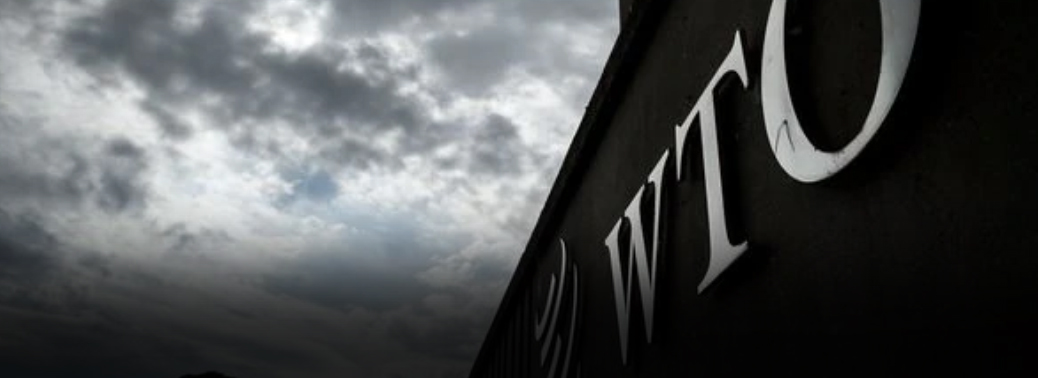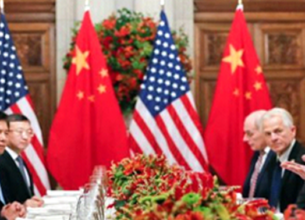INDIA WINS SOLAR CASE AGAINST US AT WTO
28, Jun 2019

Prelims level : Economics WTO, International Economics
Mains level : Indian Economy and Issues Relating to Planning, Mobilization of Resources, Growth, Development and Employment
- Context- dispute settlement panel pronouncing that subsidies and mandatory local content requirements instituted by eight American states breached global trade rules.
- Panel upholds India’s claims that renewable energy subsidies in eight American states violated a core global trade rule.
- The renewable energy sector win may help India in settling other disputes with the US.
- The panel also asked the US to ensure that these states are in conformity with trade rules.
What India claims-
- India had claimed that the “domestic content requirements and subsidies instituted by the governments of the states of Washington, California, Montana, Massachusetts, Connecticut, Michigan, Delaware and Minnesota in the energy sector”
- violated several provisions of the Trade-Related Investment Measures (TRIMs) Agreement and Subsidies and Countervailing Measures Agreement.
- New Delhi had challenged the “renewable energy cost recovery incentive payment programme” implemented by the state of Washington, California’s self-generation incentive programme, Montana’s tax incentive for ethanol production, Michigan’s renewable energy credits programme, Delaware’s solar renewable energy credits and the Made in Minnesota renewable incentive programme.
WTO Panel:
- panel urged the US to bring the eight states in conformity with US obligations under Article III:4 of “national treatment”. Under the national treatment provision, foreign producers must be treated on a par with domestic producers.
Option for US:
- The US can still challenge the panel’s ruling before the Appellate Body (AB); however, the AB itself is feared to have become dysfunctional after 11 December because the US has been blocking appointments to it.
Implication:
- it would show the US and its federal states maintain WTO-inconsistent programmes in the renewable energy sector.
- it is a lesson to the US that it should not undermine renewable energy programmes in other countries such as India on grounds that they violate global trade rules when Washington and its federal states adopt much bigger programmes worth billions of dollars that violate global trade rules.
Background Issue:
- In 2014, the US had launched a similar trade dispute against India’s Jawaharlal Nehru Solar Energy Mission, on the grounds that it included incentives for domestically produced solar cells and modules. WTO’s Appellate Body had upheld the US complaint against India in that case.
General Agreement on Tariffs and Trade:
- The General Agreement on Tariffs and Trade was the first worldwide multilateral free trade agreement.
- The purpose of GATT was to eliminate harmful trade protectionism.
- It restored economic health to the world after the devastation of World War II.
Trade-Related Investment Measures (TRIMs):
- This Agreement, negotiated during the Uruguay Round, applies only to measures that affect trade in goods.
- Recognizing that certain investment measures can have trade-restrictive and distorting effects, it states that no Member shall apply a measure that is prohibited by the provisions of GATT Article III (national treatment) or Article XI (quantitative restrictions).
What is the WTO Appellate?
- The Appellate Body was established in 1995 under Article 17 of the Understanding on Rules and Procedures Governing the Settlement of Disputes (DSU).
- It is a standing body of seven persons that hears appeals from reports issued by Panels in disputes brought by WTO Members.
- The Appellate Body can uphold, modify or reverse the legal findings and conclusions of a panel, and Appellate Body Reports, once adopted by the Dispute Settlement Body (DSB), must be accepted by the parties to the dispute.
- The Appellate Body has its seat in Geneva, Switzerland.
- The Appellate Body is composed of seven Members who are appointed by the DSB to serve for four-year terms, with the possibility of being reappointed once.
- Without the statutorily mandated number of judges to hear cases (three or more), the trade will become non-functional for all practical purposes at the end of this year, if the U.S does not allow new nominees to go through.







